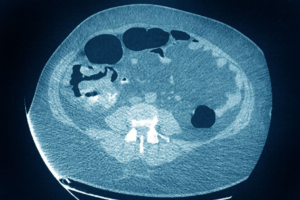Born in Australia, some of my earliest childhood memories comprise of attending rallies that my parents – who fled Iran as political refugees in 1985 – organised, where we’d shout “down with the dictator”. Fast forward to 2022, the same chants continue, albeit on the dangerous streets of Iran.
What started as a mass uprising condemning the killing under police custody of 22-year-old Kurdish-Iranian Mahsa Amini for a dress code violation has now amalgamated into widespread calls for a complete regime change in Tehran. With 60% of Iran’s population aged below 30, the current uprisings demonstrates the significance of Iran’s generation Z, defying all rules and restrictions under an oppressive regime. They can no longer be suppressed by religious clerics and are bravely rebelling against the regime.
The murder of two vibrant schoolgirls, 16-year-old Sarina Esmailzadeh and 17-year-old Nika Shahkarami, continue to haunt many of us. Both girls had their lives cut short for protesting against the regime; Iranian authorities subsequently coerced their families to report their deaths as suicides and extracted false confessions from them.
Any suggestion that this mass movement is only about the headscarf is limiting and flawed. The women of Iran want access to the fundamental freedoms that we enjoy, namely the right to self-determination and autonomy. These protests are historically unique for Iran: this is the first time political defiance is fixated on women’s freedoms, with Iranian men standing shoulder to shoulder with valiant Iranian women.
We draw hope from other global women-led demonstrations that have altered the course of history. The French Revolution was ignited by women in October 1789, demonstrating in response to the soaring bread prices. Worldwide, women in the early 20th century successfully marched for the right to vote. In 1970, women gathered in New York as part of the strike for equality, confirming that feminism was a force to be reckoned with.
I hope my Iranian sisters go down in history for igniting a revolution leading to the demise of the Iranian regime.
The barbaric treatment of protesters is not unprecedented: this regime has a blood-stained history of human rights abuses, as demonstrated by the 1988 massacre of political prisoners, the killing spree of 1998, the brutal response to the 1999 student uprisings and the 2009 green movement, as well as the deliberate downing of Ukraine’s flight PS752. It has a gruesome record of human rights violations but has not been held accountable or reprimanded.
Global community has a moral responsibility to support the Iranian people in finally extinguishing a regime that has curtailed any hope of peace and stability in the Middle East. The regime has created an extremist terrorist hub while its interference in neighbouring countries creates constant crises. The world is much safer without this regime in power.
Just condemning these atrocities is no longer enough. As the Iranian women’s movement continues, global leaders must lend their support.
The Australian government has joined others, including Germany, the UK, US, Canada, Austria and Spain in condemning the Iranian regime for its treatment of protesters. Canada has imposed sanctions against Iran’s Islamic Revolutionary Guard Corp (IRGC), permanently banning over 10,000 officers from entering Canada. The US is expected to issue new sanctions against Iranian law enforcement officials and those directly involved in the crackdown. Several members of the European Union are urging the EU to impose asset freezes and travel bans on several Iranian officials.
There is more our government in Australia can do.
We call on the Australian government to freeze the assets of regime officials and their dependents. Our government could consider listing the IRGC as a terrorist entity under Australian law, enact Magnitsky sanctions against perpetrators, members and agents of the IRGC and those responsible for these crackdowns and deaths. It could call for the regime to be removed from the UN Commission on the Status of Women and deny regime officials and their dependents from entering Australia.
The Australian government can also take the simple step of providing permanent protections to those seeking asylum from countries such as Iran. The world is witness to the regime’s engagement in human rights violations against women,religious and ethnic minorities, political activists, unionists and the LGBTQIA+ community. Refugees who have waited in Australian for 10 years are seeking safety from this brutality.
We need to care about women’s rights being violated anywhere in the world, as an attack on one woman – no matter where she is – is an attack on, and a grave threat to, women everywhere.
- Tina Hosseini is a spokesperson for The Iranian Women’s Association and a research fellow and former commissioner at the Victorian Multicultural Commission




